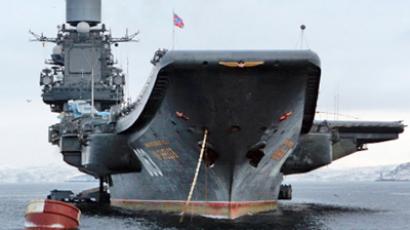Fighting in Syria continues ahead of observer mission
Syria's opposition is divided over whether they need military help from outside in their fight against the government. The split became apparent as the country witnessed some of the fiercest battles in its nine-month-old crisis.
Dozens of troops and anti-regime protesters are reported to have been killed in the latest series of clashes across the country.The Syrian authorities have agreed to allow in an observer mission which, it is hoped, might help to end the conflict. The Arab League is expected to send in an advance team within the next few days, ahead of the observer mission proper.The schedule was agreed on Monday, when the Syrian government signed the proposal that opened the door for the observers to enter the country.The decision received a mixed response from the opposition. Those outside the country, such as the Syrian National Council, say the move is not as positive as the Syrian government would like to make out. They believe it to be “a ploy” and have renewed their call for outside intervention.The National Coordination Council, which is within the country, welcomed the move and expressed hope that it would be implemented properly. As for international intervention, it could disrupt the country, they said, and therefore could not be approved.The Syrian government has asked foreign countries to avoid adding more fuel to its continuing domestic crisis. “We are not afraid of democracy,” said Jihad Makdissi, a spokesman for the Syrian Foreign Ministry. “If the outside world – neighbors, regional countries, the West – want Syria to make it out of this crisis, what we need is to push the opposition to say ‘yes’ to a dialogue, sit at one table, and discuss everything.”RT’s crew traveled to Homs – a city described as being on the brink of civil war – in order to make a first-hand assessment of the current state of the conflict. And while entry to the worst hotspots was barred, RT was able to see other parts of the city and speak to local residents.“To be honest, the situation here in Homs is very difficult,” one of them told RT. “There have been kidnappings which make us feel intimidated. Because of the situation, there have also been problems with the city receiving fuel and gas.”Just as in any zone where large-scale conflicts get a long-term grip on society, the civilian population bears the brunt, and the residents of Homs are no exception. People say they cannot wait to get their lives back to normal.
‘You don’t know what is going to take place of the regime’
Ivan Eland, a political analyst and senior fellow at the Independent Institute, says the Syrian opposition is pushing a distorted portrayal of the situation in the country in order to provoke foreign intervention.“After the Libyan example, opposition groups, unfortunately, are going to try to get the US into some sort of shooting war.”“There are some people in the US that would like to do that – to use Libya as a model and attack Syria and other countries to help the protesters. But I think that is probably counterproductive, because you don’t know what is going to take place of the regime, and I don’t think that the Libyan episode or the Egyptian episode have been solved.”“I think those countries are not yet out of the woods, and stirring things up is not necessarily a good idea because you don’t know what type of regime you are going to get.”
New York-based author and political analyst Eva Golinger claims that Western media portrays Syrian armed groups peaceful civilian victims of a brutal regime in order to justify military intervention in the country.“Most of the international media, with the exception of few stations, have ignored the fact that the Bashar al-Assad government is fighting armed groups internally, in its own country – groups that have been armed again by outside forces. And they’ve instead tried to portray it as peaceful civilians protesting for change in their country, who are being massacred by the government.”Golinger points out that this is an incredibly dangerous manipulation of facts.“What we’ve seen in other countries, like the case of Libya, is that that’s been used to justify outside aggression, military action and war – and political assassinations of heads of the state.”













